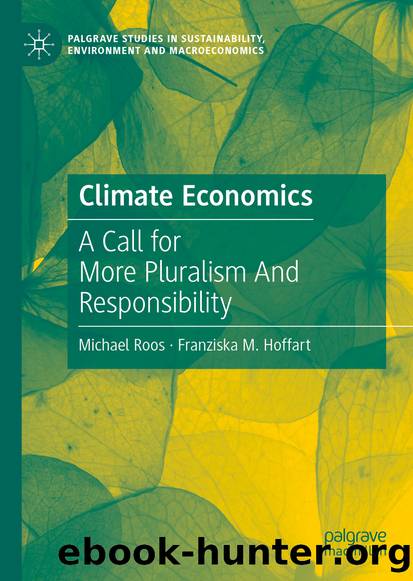Climate Economics by Michael Roos & Franziska M. Hoffart

Author:Michael Roos & Franziska M. Hoffart
Language: eng
Format: epub
ISBN: 9783030484231
Publisher: Springer International Publishing
4.4.2 Conditions for the Successful Adoption of Decarbonisation Technologies
The neoclassical logic of the internalisation of external costs due to a Pigouvian tax says that profit-maximising firms will avoid CO2 emissions if the previously free emissions get a price. One way to avoid CO2 emissions is by investing into less carbon intensive technologies or in technologies that capture CO2 after the process that generated the emissions.
Van den Bergh (2007) explains why this neoclassical view is not sufficient from the perspective of evolutionary economics. Neoclassical economics does not analyse how innovation occurs and what might be factors that promote or hinder the development of new less carbon-intensive technologies. A particular problem is that economy-wide decarbonisation requires not only the adoption of new technologies by individual firms but the transformation of whole systems, such as the energy system, the transportation system or the agricultural production system. The transformation of systems is difficult because of technological complementarities, supply-chains, path dependence and lock-in effects. For example, the transition from gasoline-fuelled cars to electric cars or hydrogen-fuelled ones cannot simply be achieved by a decision of car manufacturers. Customers will not buy such cars as long as there is no infrastructure for fuelling hydrogen cars or recharging electric cars. Furthermore, enough electricity or hydrogen must be produced by someone. These system transitions involve significant coordination problems by a multitude of different actors and are hence impossible to pursue by individual firms, even if they have a monetary incentive to do so. Van den Berg (2007, p. 540) states:From the perspective of path-dependence and lock-in, relevant questions are how regime shifts occur, how they can be stimulated, and how new lock-ins of inefficient or undesired technologies can be avoided. Preventing early lock-in requires a sort of portfolio investment. Un-locking of undesired structures and technologiesâfrom an environmental or some social welfare perspectiveâcannot be realized by simply âcorrecting pricesâ, but requires also taking into account increasing returns on demand and supply sides, and (potential) learning curve effects. This has been referred to as transition policy ⦠and it requires additional policies, notably innovation policy.
Download
This site does not store any files on its server. We only index and link to content provided by other sites. Please contact the content providers to delete copyright contents if any and email us, we'll remove relevant links or contents immediately.
International Integration of the Brazilian Economy by Elias C. Grivoyannis(107258)
The Radium Girls by Kate Moore(12009)
Turbulence by E. J. Noyes(8014)
Nudge - Improving Decisions about Health, Wealth, and Happiness by Thaler Sunstein(7685)
The Black Swan by Nassim Nicholas Taleb(7095)
Rich Dad Poor Dad by Robert T. Kiyosaki(6588)
Pioneering Portfolio Management by David F. Swensen(6278)
Man-made Catastrophes and Risk Information Concealment by Dmitry Chernov & Didier Sornette(5993)
Zero to One by Peter Thiel(5778)
Secrecy World by Jake Bernstein(4735)
Millionaire: The Philanderer, Gambler, and Duelist Who Invented Modern Finance by Janet Gleeson(4456)
The Age of Surveillance Capitalism by Shoshana Zuboff(4272)
Skin in the Game by Nassim Nicholas Taleb(4229)
The Money Culture by Michael Lewis(4182)
Bullshit Jobs by David Graeber(4170)
Skin in the Game: Hidden Asymmetries in Daily Life by Nassim Nicholas Taleb(3983)
The Dhandho Investor by Mohnish Pabrai(3747)
The Wisdom of Finance by Mihir Desai(3724)
Blockchain Basics by Daniel Drescher(3571)
